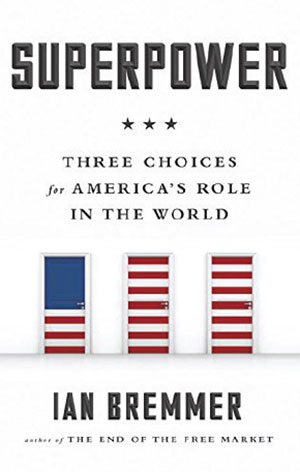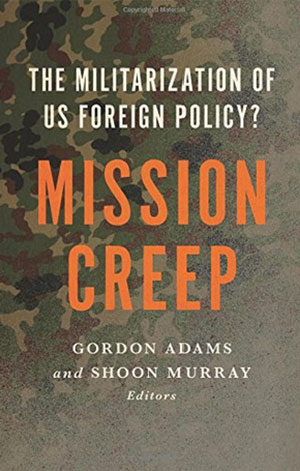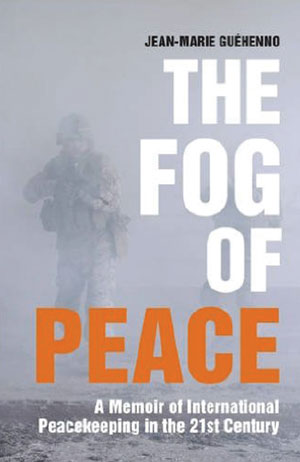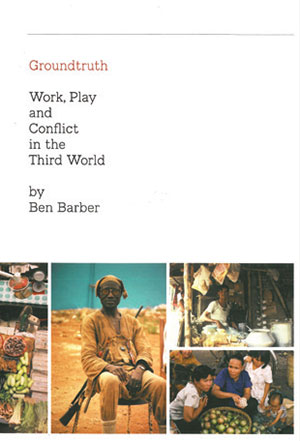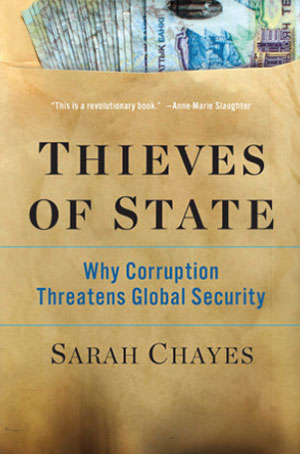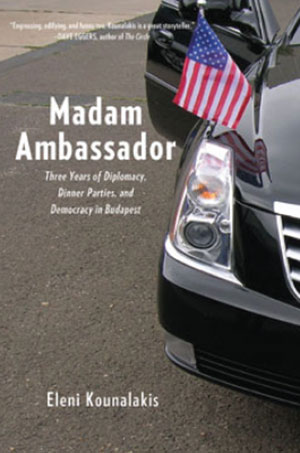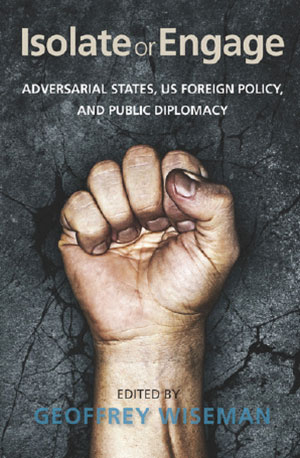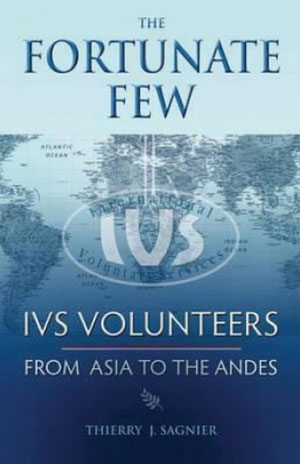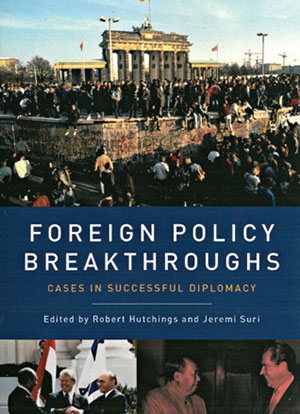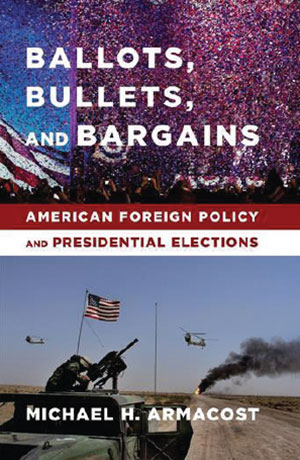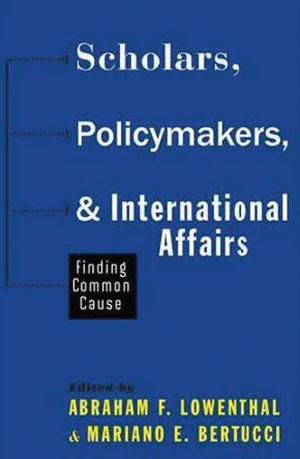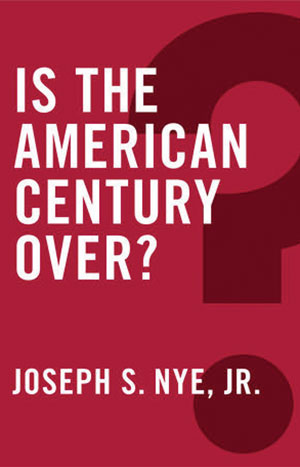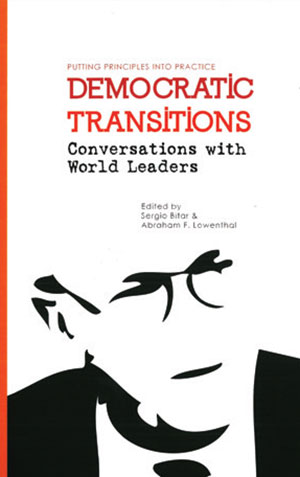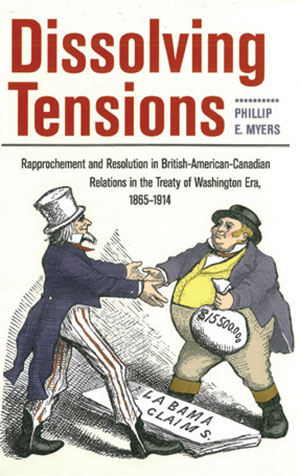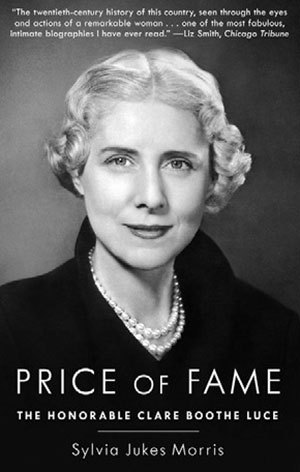Of Related Interest
Here is a short listing of books of interest to diplomats that have not been written by members of the Foreign Service or their families.
Superpower: Three Choices for America’s Role in the World
Ian Bremmer, Portfolio, 2015, $27.95/hardcover; $17/paperback; $14.99/Kindle, 240 pages.
In Superpower, Ian Bremmer writes about the imperative to define a foreign policy strategy, which, he maintains, the United States has lacked since the end of the Cold War. As a result, U.S. foreign policy has been characterized by inconsistency, timidity and an inability to respond effectively to increasingly expensive and dangerous crises in Afghanistan, Iraq, Ukraine, Syria and elsewhere. Predicting the United States will remain a superpower for the foreseeable future, Bremmer presents three alternatives to the current aimlessness. He describes the options—“Indispensable,” “Moneyball” and “Independent America”—as “going with your heart, wallet and head,” respectively.
Ian Bremmer is the president and founder of the global political risk research and consulting firm Eurasia Group. He has published nine books, including The End of the Free Market and Every Nation for Itself. He lectures widely and writes a weekly foreign affairs column for Time magazine.
Mission Creep: The Militarization of U.S. Foreign Policy?
Gordon Adams and Shoon Murray, editors, Georgetown University Press, 2014, $34.95/paperback; $22.33/Kindle, 256 pages.
After the Cold War, and especially since 9/11, the United States has increasingly relied on the resources of the Department of Defense to deal with a changing global environment and the rise of terrorism, Islamic radicalism, ethnic conflict and failed states. The term “militarization” in this title refers to a subtle phenomenon in which the military has increasingly become the primary actor and factor of U.S. policy abroad.
Editors Gordon Adams and Shoon Murray have assembled a set of essays by Senior Foreign Service officers and other officials examining the causes and implications of this and offering recommendations for rebalancing the civilian-military equation in foreign policy decision-making and implementation.
Mission Creep is “an excellent starting point for the national debate that is long overdue,” says Ambassador (ret.) Charles Ray in his review in the October FSJ.
The Fog of Peace: A Memoir of International Peacekeeping in the 21st Century
Jean-Marie Guéhenno, Brookings Institution Press, 2015, $25/paperback, 330 pages.
The Fog of Peace is a telling memoir by Jean-Marie Guéhenno, under secretary of the United Nations for peacekeeping operations from 2000 to 2008. Its pages are filled with case studies from the author’s time at the helm of U.N. peacekeeping operations in places such as Darfur, Kosovo, Ivory Coast, Afghanistan, Georgia, Iraq, Haiti and Lebanon. Guéhenno’s stories illustrate how deep divisions in the international community have been overcome to save lives and create stability in conflict settings. The key, he argues, is accepting that outcomes will be imperfect and that comprises must be made. Why the world is seemingly paralyzed by inaction in Syria is one of the major questions explored in the book.
After leaving his peacekeeping post in 2008, Jean-Marie Guéhenno served as an aide to then-U.N. Secretary General Kofi Annan. He is currently the head of the International Crisis Group in Washington, D.C.
Saved for a Purpose: A Journey from Private Virtues to Public Values
James A. Joseph, Duke University Press, 2015, $29.95/hardcover; $20.75/Kindle, 330 pages.
After surviving a harrowing airplane crash in the South Pacific in 1978, James Joseph was inspired to redouble his efforts to integrate values into America’s public, private and independent sectors. In this autobiography, he chronicles his life’s journey to serve others.
The son of a minister in the segregated South, Joseph navigated the turbulence of the 1960s and supported an end to apartheid in South Africa—a country to which President Bill Clinton later named him U.S. ambassador. He’s spent the years since in academia, seeking to build a culture of ethical leadership across all disciplines.
James A. Joseph is a professor emeritus at Duke University. He has served as under secretary of the Department of the Interior in the Carter administration, president and CEO of the Council on Foundations, vice president of the Cummins Engine Company and chaplain of Claremont Colleges.
The Ambassador’s Wife: A Novel
Jennifer Steil, Doubleday, 2015, $26.95/hardcover; $13.99/Kindle; $26.95/audiobook, 400 pages.
Don’t be fooled by this novel’s deceptively colorless title! The Ambassador’s Wife tells a story so spectacular that it is being made into a film starring Anne Hathaway. The title character, Miranda, lives in the fictional Middle Eastern country of Mazrooq with her husband, Finn, and their daughter. Though the family enjoys luxuries that the majority of citizens in the desperately poor and unstable country will never know, they come at a steep price. In the midst of a civil war, Miranda is kidnapped, an act of terror with complex and far-reaching consequences.
Jennifer Steil previously published The Woman Who Fell from the Sky, a memoir about her experiences running a newspaper in Yemen. She currently lives in Bolivia, where her husband is the European Union ambassador to La Paz.
GROUNDTRUTH: Work, Play and Conflict in the Third World
Ben Barber, de.MO Design Limited, 2014, $34/paperback, 240 pages.
This handsome collection of photographs and vignettes will give readers unique insights into the daily lives of people around the globe, from Thailand and India to Morocco and Haiti. It is designed to bridge the gap of understanding between the developed and developing worlds through what intelligence officers call “groundtruth”: the real situation on the ground.
As former USAID Administrator Andrew S. Natsios observes, “Ben Barber captures people at work and play, in crisis and recovery, where they tell their own stories in a way which begins to correct the distorted image of life in the developing world.”
A longtime contributor to The Foreign Service Journal, Ben Barber has worked for more than 35 years as a reporter and photographer for USA Today, the Baltimore Sun, Newsday, the New York Times, Christian Science Monitor and other publications. He currently writes for The Huffington Post and McClatchy Newspapers.
Thieves of State: Why Corruption Threatens Global Security
Sarah Chayes, W.W. Norton & Company, 2015, $26.95/hardcover; $16.95/paperback; $12.99/Kindle; $20.95/audiobook, 273 pages.
Thieves of State is an authoritative study of the pernicious effects of unabated corruption on global security (see Susan Maitra’s review in the September FSJ). Sarah Chayes—drawing primarily from her experience in Afghanistan from 2001 to 2010 as a radio correspondent, NGO head, small business owner and adviser to the U.S. government—stresses the need to end the U.S. habit of overlooking systemic corruption. Indeed, crooked practices benefitting our bilateral counterparts, as she observed in Kabul, often serve as major drivers of the violent extremism and civil unrest the United States seeks to counteract.
In 2010, Sarah Chayes returned to Washington, D.C., to serve as special assistant to the chairman of the Joint Chiefs of Staff. She is now a senior associate at the Carnegie Endowment. Chayes is a contributing writer for the Los Angeles Times and is also author of The Punishment of Virtue: Inside Afghanistan after the Taliban (Penguin Press HC, 2006).
Madam Ambassador: Three Years of Diplomacy, Dinner Parties, and Democracy in Budapest
Eleni Kounalakis, The New Press, 2015, $26.95/hardcover; $12.99/Kindle, 320 pages.
Madam Ambassador is an autobiographical glimpse at one California businesswoman’s experience navigating the world of diplomacy as the U.S. ambassador to Hungary from 2010 to 2013. The first Greek-American woman to hold the title, Eleni Kounalakis tells of her grueling vetting process, the challenges inherent in moving one’s family across an ocean, and her ambassadorial triumphs and blunders. From maintaining a delicate balance between fostering strong relations with a key NATO ally in Afghanistan and responding to the country’s rise of nationalism and anti-Semitism, the author’s narrative offers an important example of how a political appointee may work together with her country team to effectively advance U.S. foreign policy.
Eleni Kounalakis is the current chair of the California International Trade and Investment Advisory Council and a senior adviser to the Albright Stonebridge Group. She lives with her husband, journalist Markos Kounalakis, and their two sons in San Francisco.
Addressing America: George Washington’s Farewell and the Making of National Culture, Politics, and Diplomacy, 1796-1852
Jeffrey J. Malanson, Kent State University, 2015, $55/hardcover; $46.99/Kindle, 288 pages.
In his presidential farewell address of 1796, George Washington presented a series of maxims to guide the construction of a wise foreign policy—perhaps chief among them his admonition to avoid “entangling alliances.” Washington makes a point of warning that nations who may be considered friendly to the United States, as well as its enemies, will try to influence our government to do their will. But he also believed that true patriots will always resist such inducements and pressures, and will instead do what is best for their fellow Americans.
Through its focus on the enduring diplomatic, political and cultural impact of Washington’s Farewell Address, Addressing America reasserts the fundamental importance of this critical document to 19th-century America—as well as its continuing relevance to U.S. foreign policy today.
Jeffrey J. Malanson is an assistant professor of history at Indiana University-Purdue University Fort Wayne.
Isolate or Engage: Adversarial States, U.S. Foreign Policy and Public Diplomacy
Geoffrey Wiseman, Stanford University Press, 2015, $95/hardcover; $27.95/paperback; $27.95/Kindle, 328 pages.
True to its title, each chapter of Isolate or Engage explores how successive presidents have reached out to, ignored or tried to destabilize various “problem” countries. Though public diplomacy is the prism through which most contributors view bilateral relations, one need not be a PD specialist to appreciate their insights.
The authors, a mix of academics and practitioners, include several names familiar to many FSJ readers: retired FSO William Rugh, Michael Shifter, Robert D. English and Scott Snyder. Bracketed by introductory and concluding essays by Geoffrey Wiseman, the book’s editor, the chapters deal with, in turn, the Soviet Union/Russian Federation, China, North Korea, Vietnam (both North and South), Libya, Iran, Syria, Cuba and Venezuela.
Geoffrey Wiseman is professor of the practice of international relations and a university fellow at the Center for Public Diplomacy, located at the University of Southern California.
The Fortunate Few: IVS Volunteers from Asia to the Andes
Thierry J. Sagnier, NCNM Press, 2015, $24.95/paperback, 374 pages.
Nearly 1,400 men and women joined International Voluntary Services between 1953 and 2002, offering their time and talents to improve the lives of people in 40 countries. In this volume, some 100 of those volunteers reflect on the work they performed, often under difficult and dangerous conditions, and the impact it had—both on the people and places they served and their own futures. (Several of them later joined the Foreign Service.)
The effectiveness of the IVS helped inspire the creation of several other volunteer agencies, including the Peace Corps. Anyone interested in the history of American development efforts will value having The Fortunate Few in his or her library. And today’s generation of volunteers will find these stories a rich source of inspiration.
Thierry J. Sagnier is a former World Bank senior writer who has previously published a novel and essay collection, numerous magazine and newspaper articles, documentary films and radio scripts about development issues.
Foreign Policy Breakthroughs: Cases in Successful Diplomacy
Robert Hutchings and Jeremi Suri, Oxford University Press, 2015, $99/hardcover; $29.95/paperback; $19.99/Kindle, 304 pages.
Robert Hutchings and Jeremi Suri certainly don’t think small! Drawing on deep historical research, their book aspires to do nothing less than reinvent diplomacy for the 21st century by analyzing such success stories as post-World War II relief, the rise of the nonaligned movement, the Nuclear Nonproliferation Treaty, the U.S. opening to China, the Camp David Accords and completion of the North American Free Trade Agreement.
Robert Hutchings, a periodic contributor to the FSJ, has been dean of the Lyndon B. Johnson School of Public Affairs at the University of Texas in Austin since 2010. His government career included stints as director for European affairs at the National Security Council, special adviser to the Secretary of State with the rank of ambassador and chairman of the U.S. National Intelligence Council.
Jeremi Suri holds the Mack Brown Distinguished Chair for Leadership in Global Affairs at the University of Texas in Austin, and is the author of five previous books on international diplomacy, strategy and policymaking.
Ballots, Bullets and Bargains: American Foreign Policy and Presidential Elections
Michael H. Armacost, Columbia University Press, 2015, $35/hardcover; $34.99/Kindle, 304 pages.
In this evocatively titled book, Michael H. Armacost shows how the contours of the U.S. presidential election system influence the content and conduct of U.S. foreign policy. Drawing on 24 years of experience in government, he describes how nomination battles and re-election campaigns each come with unique pitfalls and opportunities in diplomacy.
Armacost pays particular attention to the pressure on new presidents to act boldly abroad in the early months of their tenure, even before their national security team is in place and policy priorities are set. He concludes with an appraisal of the virtues and liabilities of the current system, offering some modest suggestions for improvement.
Michael H. Armacost is the Shorenstein Distinguished Professor at Stanford University’s Walter H. Shorenstein Asia-Pacific Research Center. In addition to senior positions at the Defense Department and on the National Security Council staff, he served as under secretary of State for political affairs and as U.S. ambassador to the Philippines and Japan.
Scholars, Policymakers and International Affairs: Finding Common Cause
Edited by Abraham F. Lowenthal and Mariano E. Bertucci, Johns Hopkins University Press, 2014, $59.95/hardcover; $29.95/paperback; $27.43/Kindle, 260 pages.
The chasm between practitioners and academics, particularly in the field of foreign affairs, has been with us for a long time. The contributors to this thoughtful collection of essays—written for a 2011 symposium organized by the editors, Abraham Lowenthal and Mariano Bertucci—seek to bridge that gap by examining a wide variety of diplomatic case studies.
Reviewing the book in the January-February FSJ, Joseph Bristol noted that the office of State Department Counselor Thomas Shannon “has found the ideas in this book of great interest. The broader foreign policy community and diplomats everywhere will no doubt also find the book useful.”
Abraham F. Lowenthal is professor emeritus of the University of Southern California and was the founding director of both the Inter-American Dialogue and the Woodrow Wilson Center’s Latin America program. Mariano E. Bertucci is a post-doctoral fellow at the Center for Inter-American Policy and Research at Tulane University.
Is the American Century Over?
Joseph S. Nye Jr., Global Futures Series, Polity Press, 2015, $45/hardcover; $12.95/paperback; $12.95/Kindle, 152 pages.
Joseph S. Nye. Jr. not only coined the term “soft power,” but has arguably done more than anyone else to flesh out that elusive concept. To answer the question he poses in his latest book’s title—Is the American Century Over?—he examines all the claims that the rise of China must, perforce, signal the decline of America, and finds them wanting. He asserts that the American Century will likely continue, but we will wield our power in different ways than heretofore.
Reviewing this book in the June FSJ, Harry C. Blaney III found it contained “so many insights into the global dynamics of power and its significance that I would make it required reading for all members of the A-100 course, with a class discussion of the implications of these trends and our role in this new and changing world. It should also be read by all who take the new ambassadors’ class.”
Democratic Transitions: Conversations with World Leaders
Edited by Sergio Bitar and Abraham F. Lowenthal, Johns Hopkins University Press, 2015, $35/paperback; $35/Kindle, 488 pages.
This volume records probing conversations with past and present leaders of Brazil, Chile, Ghana, Indonesia, Mexico, the Philippines, Poland, South Africa and Spain, about the pivotal roles they played in their respective nations’ transitions to democratic governance. There are also chapters devoted to groups of activists in the areas of women’s rights and democracy promotion who have operated in those countries. The interviews stem from an initiative of the Stockholm-based International Institute for Democracy and Electoral Assistance, an intergovernmental organization with 28 member states that promotes sustainable democracy worldwide.
Former United Nations Secretary-General Kofi Annan praises the insights in Democratic Transitions as “critical to the global dialogue on building open, democratic and sustainable societies.”
Sergio Bitar, president of Chile’s Foundation for Democracy, is a political leader and public intellectual. Abraham F. Lowenthal is professor emeritus of the University of Southern California and was the founding director of both the Inter-American Dialogue and the Woodrow Wilson Center’s Latin America program.
The Invisible Soldiers: How America Outsourced Our Security
Ann Hagedorn, Simon & Schuster, 2014, $28/hardcover; $17/paperback; $12.99/Kindle; $17.95/audiobook, 321 pages.
The number of U.S. contractors operating on foreign battlefields and in U.S. embassies all over the world has grown steadily since they were first used during the Balkan stabilization and reconstruction operations of the 1990s. Security contractors have been deployed in African trouble spots, hired to spray coca crops in Colombia and hired in vast numbers to provide security, intelligence, training and other essential services during the wars in Iraq and Afghanistan.
Ann Hagedorn, a former reporter for The Wall Street Journal, sounds a much-needed alarm about the ongoing privatization of America’s national security—a trend that paved the way for the Blackwater debacle in Baghdad, among other black eyes for U.S. foreign policy. She shows us how and why this trend began, and why all Americans should be worried about it.
Dissolving Tensions: Rapprochement and Resolution in British-American-Canadian Relations in the Treaty of Washington Era, 1865-1914
Phillip E. Myers, Kent State University Press, 2015, $60/hardcover; $49.99/Kindle, 320 pages.
At first glance, this book might seem devoted to an extremely esoteric topic. After all, how contentious could relations have been among three English-speaking countries whose troops had last met on a battlefield half a century before the period it covers? In fact, however, it is a fascinating treatment of Reconstruction-era American diplomacy.
Paying close attention to the interpersonal and cautiously cooperative interactions of such diplomats as William Seward, Lord John Russell, Hamilton Fish, William Gladstone and Ulysses S. Grant, Myers deftly makes the case that the vaunted “special relationship” between London and Washington, often seen as a 20th-century development, actually blossomed following the 1871 Treaty of Washington that settled a slew of issues involving the three nations.
Philip E. Myers is a retired research foundation administrator, graduate dean and history professor. He is also the author of Caution and Cooperation: The American Civil War in British-American Relations.
Price of Fame: The Honorable Clare Boothe Luce
Sylvia Jukes Morris, Random House, 2015, $35/hardcover; $20/paperback; $13.99/Kindle; $29.95/audiobook, 752 pages.
Claire Boothe Luce once told biographer Sylvia Jukes Morris, “I hope I shall have ambition until the day I die.” Price of Fame, the second and concluding volume of this monumental biography of Luce, makes clear that her wish was amply granted. Morris picks up the story with her subject’s 1942 election to the House of Representatives. A decade later, Luce became the first American woman to receive a major ambassadorship, serving as President Dwight Eisenhower’s envoy in Rome from 1953 to 1956 (where, by most accounts, she performed impressively). She was confirmed as ambassador to Brazil in 1959 despite strong opposition from the chair of the Senate Foreign Relations Committee, but resigned the position just four days later. She died in 1987 after a long, colorful life.
Sylvia Jukes Morris is also the author of Rage for Fame: The Ascent of Claire Booth Luce (the first volume of this biography) and Edith Kermit Roosevelt: Portrait of a First Lady.
Before the First Shots Are Fired: How America Can Win or Lose Off the Battlefield
Tony Zinni and Tony Koltz, St. Martin’s Press, 2014, $27/hardcover; $16.99/paperback; $9.99/Kindle; $29.95/audiobook, 256 pages.
Drawing on his vast experience, from combat in Vietnam to peacekeeping in Somalia, bureaucratic warfare in Washington, D.C., and negotiations with former rebels in the Philippines, retired four-star General Anthony Zinni argues that we have a lot of work to do to make the process of going to war—and keeping the peace—more successful.
In this book, he critically examines the relationship between the executive branch and the military; the failures of the Joint Chiefs of Staff; the challenges of working with the United Nations, coalition forces and NATO; the role of special forces and drone warfare; and the difficult choices that need to be made to create tomorrow’s military.
Refreshingly, Zinni calls for the State Department, USAID and other foreign affairs agencies to be better funded, staffed and structured to be on par with their uniformed colleagues.
Anthony C. Zinni retired from the U.S. Marine Corps in 2000 as commander in chief of the U.S. Central Command, after a distinguished nearly 40-year military career. He is the co-author, with Tom Clancy, of Battle Ready (2004) and has written several books with writer Tony Koltz on foreign policy, including The Battle for Peace (2006) and Leading the Charge (2009).

